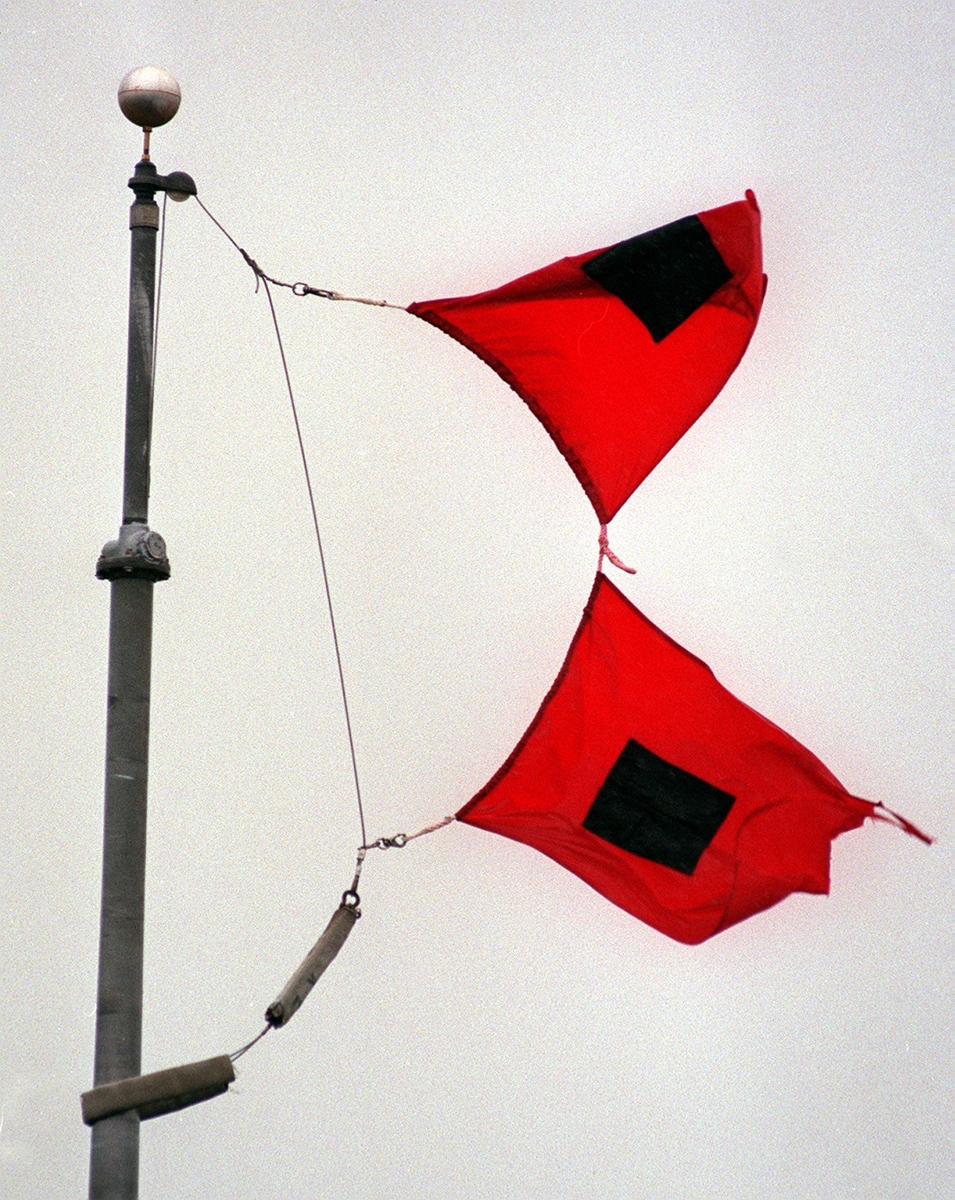 DePaul University faculty experts are available to provide insight and commentary on the 10-year anniversary of Hurricane Katrina from a variety of angles including climate change, race relations and social enterprise. Pictured are warning flags during Hurricane Bertha. (Photo by Jamie Moncrief)
DePaul University faculty experts are available to provide insight and commentary on the 10-year anniversary of Hurricane Katrina from a variety of angles including climate change, race relations and social enterprise. Pictured are warning flags during Hurricane Bertha. (Photo by Jamie Moncrief)CHICAGO — This August marks the 10-year anniversary of Hurricane Katrina, which killed 1,200 people and crippled the city of New Orleans. While some parts of the Louisiana city have recovered, others still look apocalyptic with abandoned theme parks and only stairs remaining where houses once stood. The damage was not only physical though, there were many social repercussions that came to pass in the aftermath of Hurricane Katrina including the effects it had on local businesses and heightening questions of race relations in the U.S.
DePaul University faculty experts are available to provide insight and commentary on the 10-year anniversary from a variety of angles including climate change, race relations and social enterprise.
Experts available for news interviews include:
Mark Potosnak, associate professor, College of Science and Health. Potosnak is an expert in environmental science. His research focuses on interactions between the terrestrial biosphere and the atmosphere. Specifically, he studies how trace gas emissions from plants affect atmospheric chemistry and how climate change will impact this interaction in the future. “Reflecting back on Hurricane Katrina, the tragedy demonstrated that the poor are the most vulnerable to extreme weather. The majority of the fatalities occurred in the predominately poor and minority 9th Ward of New Orleans. With climate change, we are moving into a world projected to have more frequent extreme weather events, and the poor will be on the front lines of these impacts,” said Potosnak. He can be reached at mpotosna@depaul.edu or 773-325-7867.
James Wolfinger, associate professor, College of Liberal Arts and Social Sciences. Wolfinger is an expert in 20th century U.S. history with an emphasis on issues of race, politics and urban development. He also has authored the book “Philadelphia Divided: Race and Politics in the City of Brotherly Love.” “Hurricane Katrina revealed issues of urban poverty and how people think the government’s slow relief response to this hurricane was different because most people who were impacted in New Orleans were African American. It led to a lot of conversations and soul searching about how we use the government to help all Americans or some more than others,” said Wolfinger. He can be reached at jwolfing@depaul.edu or 773-325-4290.
Patrick J. Murphy, professor, Driehaus College of Business. Murphy is an expert in social enterprise. He developed and teaches DePaul's MBA social enterprise seminar and has published influential works in the area. In 2009, he led a team of DePaul MBA students to work with social entrepreneurs in post-Katrina New Orleans. They developed a venture growth plan for Naked Pizza, a local all-natural ingredient pizza establishment, and won against teams from Stanford, Northwestern and Berkley in Idea Village’s IdeaCorps Challenge. “When you have such a rich culture like the one in New Orleans, in a natural disaster setting like the one that existed after Katrina, there’s a lot of social damage, but also a lot of good and a lot of work to be done by entrepreneurial enterprises. I believe it is incredibly important to support social enterprises that can become self-sustainable in such settings,” he said. Today, Naked Pizza is a thriving business with locations around the world. Murphy can be reached at profpjm@gmail.com or 312-362-8487.
Ruth Gannon-Cook, associate professor, School for New Learning. Gannon-Cook is a fourth-generation New Orleanian and has a first-hand knowledge of how the hurricane impacted the environment and culture of the area. “We from New Orleans all knew it was a question of when something like Katrina might happen, but nothing prepared anyone for Katrina. Some of my family from the 9th ward lost everything and are only now really recovering and moving on,” she said. Gannon-Cook can be reached at rgannonc@depaul.edu or 312-362-5120.
###
Media Contact:
Wendy Zamaripa Smit
wsmit@depaul.edu
312-362-7749